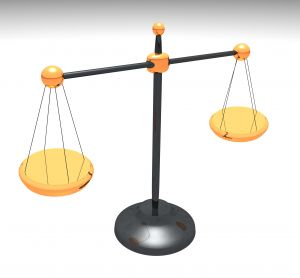 The blog, TechDirt, recently published an article titled, “Is Policing Plagiarism at A University As Counterproductive As Trying To Stop Copyright Infringement?” The article postulates that creating a learning environment based on discovering plagiarism and punishing the culprits can backfire by producing a fearful and ineffective classroom atmosphere. The author likens this to the back-and-forth battle over copyright infringement between companies and users that often leaves both sides with a bad taste in their mouth; this type of ongoing battle can stifle creativity with an ‘angry us-vs.-them world.’
The blog, TechDirt, recently published an article titled, “Is Policing Plagiarism at A University As Counterproductive As Trying To Stop Copyright Infringement?” The article postulates that creating a learning environment based on discovering plagiarism and punishing the culprits can backfire by producing a fearful and ineffective classroom atmosphere. The author likens this to the back-and-forth battle over copyright infringement between companies and users that often leaves both sides with a bad taste in their mouth; this type of ongoing battle can stifle creativity with an ‘angry us-vs.-them world.’
Although the analogy between classroom plagiarism and copyright infringement doesn’t hold up completely, there are good points to be taken from the example. First and foremost, students are in a classroom to learn. There are a variety of teaching methods involved in learning which need to be balanced with both positive and negative reinforcement. Limiting a teaching environment to only one or the other is likely to lead to less effective education.
Another big part of creating a healthy teaching environment is catering to individual students. This means accepting that different students are different types of learners; for example, some do better with visual stimulation and others work better through auditory learning. Likewise, some students respond better to positive reinforcement while others require more negative penalties.
As far as the learning curve for plagiarism goes, different students at a university are likely at very different places based on their prior education. Some probably have a firm grasp of proper citations, paraphrasing and exactly what constitutes plagiarism. Other students may have more of a murky understanding on how to approach the issue. Because of this discrepancy in student understanding and learning variance, plagiarism needs to be approached with a balanced hand in any classroom.
The TechDirt article stresses the fact that creating an environment solely based on punishment just can’t work:
“What many who focus on enforcement and punishment don't realize is that creating an environment that focuses solely on punishing those who infringe or cheat does have serious and significant spillover effects and unintended consequences on the rest of the "market/class."
We need to keep in mind that the flip side of the coin is also true. Creating a learning environment singularly based on positive re-enforcement, without any repercussions for breaking the rules, also will not work. Different students need to be exposed to different stimuli for proper learning. They need to be aware that if they plagiarize they will be caught and face the repercussions, while also realizing the benefits of striving towards integrity through their research and writing.
Citations
Masnick, Mike. “Is Policing Plagiarism at A University As Counterproductive As Trying To Stop Copyright Infringement?” September 8th, 2011. TechDirt.com. http://www.techdirt.com/articles/20110725/12283215243/is-policing-plagiarism-university-as-counterproductive-as-trying-to-stop-copyright-infringement.shtml
Related
Topics: Academic